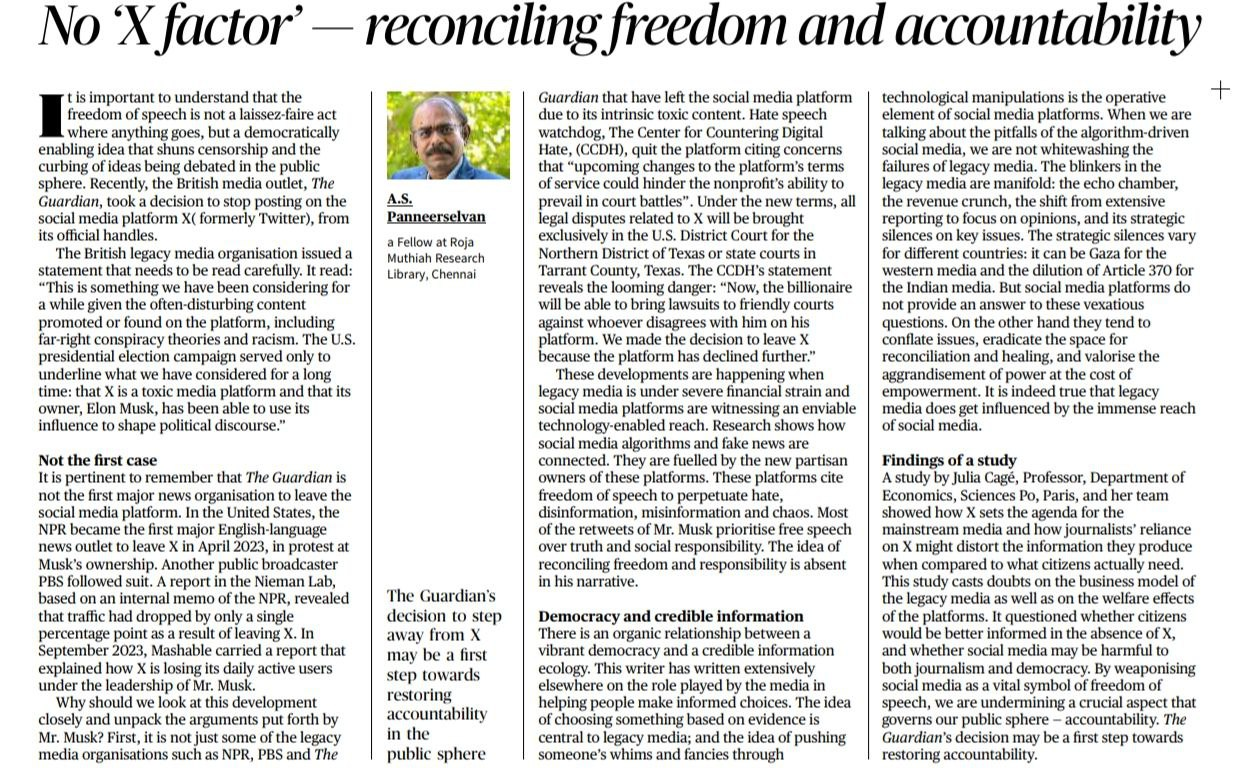Social Media Platforms: Balancing Freedom and Accountability
Introduction
- Social media platforms like X (formerly Twitter) have become critical spaces for public discourse. However, the growing concerns around misinformation, hate speech, and toxic content raise questions about freedom of speech and accountability.
- Recent developments, such as The Guardian’s decision to exit X, highlight the ethical and operational challenges of algorithm-driven social platforms in maintaining democratic values.
Challenges Posed by Social Media Platforms
- Toxic Content and Hate Speech:
- Platforms often amplify far-right conspiracy theories, racism, and misinformation.
- Hate speech watchdogs like the Center for Countering Digital Hate (CCDH) have exited platforms citing inadequate safeguards.
- Algorithm-Driven Polarization:
- Algorithms prioritize engagement, often amplifying divisive content.
- Partisan ownership of platforms influences the dissemination of fake news.
- Freedom vs. Accountability:
- Owners of platforms like X prioritize free speech but often neglect social responsibility.
- Legal changes, such as restricting lawsuits to specific jurisdictions, tilt the balance against accountability.
- Impact on Legacy Media:
- Financial strains and reduced audience engagement due to reliance on social media platforms for traffic.
- Social media agendas often influence traditional media narratives.
Democracy and Credible Information
- A vibrant democracy depends on credible information ecosystems.
- Social media platforms, while providing a forum for free speech, must align their operations with public accountability and journalistic integrity.
- Studies reveal concerns about platforms influencing public perceptions and eroding journalistic standards.
Steps Toward Accountability
- Exit by Legacy Media: Actions like The Guardian’s decision to leave X mark a push towards accountability in public discourse.
- Policy and Regulatory Reforms: Governments need to implement frameworks for regulating social media algorithms and content moderation.
- Media Literacy: Promote awareness among users to critically evaluate online content.
- Revisiting Platform Ownership Models: Encouraging independent, non-partisan ownership to reduce biases.
Conclusion
- Social media platforms are integral to modern democracy but must strike a balance between freedom of speech and responsibility. Ensuring transparency, combating hate speech, and safeguarding credible information are essential for sustaining the public sphere.
- Decisions like The Guardian’s signal a step towards restoring accountability in digital spaces. The future of social media lies in reconciling the ideals of free speech with ethical responsibility.
Mains Practice Questions
|
“The rise of social media platforms has brought new challenges to the idea of freedom of speech in a democracy.” Discuss with examples.
|


